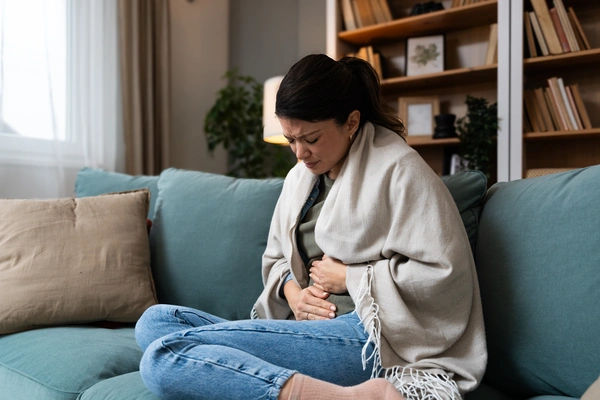Diarrhoea Testing and Diagnosis Guide
Learn when to seek help for diarrhoea, what tests are used for diagnosis, and how to manage symptoms at home. Get expert guidance on causes, testing, and treatment.

Written by Dr. Vasanthasree Nair
Reviewed by Dr. Mohammed Kamran MBBS, FIDM
Last updated on 29th Jul, 2025

Diarrhoea Testing and Diagnosis Guide
Introduction
Diarrhoea is a common condition that most people experience at some point in their lives. While it often resolves on its own, persistent or severe diarrhoea can indicate an underlying health issue. Understanding when to seek medical help and how diarrhoea is diagnosed can help you manage the condition effectively.
What is Diarrhoea?
Diarrhoea is characterised by loose, watery stools occurring more frequently than usual (typically three or more times a day). It can be:
- Acute diarrhoea : Lasts a few days, often due to infections.
- Chronic diarrhoea : Persists for weeks, possibly linked to digestive disorders.
Common Symptoms
Besides frequent loose stools, diarrhoea may be accompanied by:
- Abdominal cramps
- Bloating
- Nausea or vomiting
- Fever
- Dehydration (dry mouth, dizziness, fatigue)
If diarrhoea lasts more than two days (or 24 hours in children), or is accompanied by severe symptoms like blood in stool, high fever, or signs of dehydration, seek medical attention.
What Causes Diarrhoea?
Diarrhoea can result from various factors, including:
- Infections: Bacteria (E. coli, Salmonella), viruses (Norovirus, Rotavirus), or parasites.
- Food intolerances: Lactose or gluten sensitivity.
- Medications: Antibiotics, antacids, or chemotherapy.
- Digestive disorders: Irritable bowel syndrome (IBS), Crohn’s disease, ulcerative colitis.
- Traveller’s diarrhoea: Contaminated food or water in new locations.
When Should You Get Tested?
Testing is recommended if:
- Diarrhoea lasts more than 2 days (or 1 day in children).
- There is blood or mucus in the stool.
- You experience severe dehydration (extreme thirst, dark urine, dizziness).
- You have a high fever (above 102°F or 39°C).
- You recently travelled to a high-risk area.
Consult Top Physician For More Health Benefits
How is Diarrhoea Diagnosed?
Your doctor may recommend the following tests:
1. Stool Test
- Checks for infections (bacteria, viruses, parasites) or signs of inflammation.
2. Blood Tests
- Detects dehydration, electrolyte imbalances, or infections.
3. Hydrogen Breath Test
- Diagnoses lactose intolerance or bacterial overgrowth.
4. Colonoscopy or Endoscopy
- Used if chronic diarrhoea is suspected (e.g., Crohn’s disease, celiac disease).
5. Imaging Tests (X-ray, CT scan)
- Rarely needed unless structural issues are suspected.
Managing Diarrhoea at Home
Most cases of mild diarrhoea improve with simple home care:
- Stay Hydrated: Drink water, oral rehydration solutions (ORS), coconut water, or clear broths.
- Eat Bland Foods: BRAT diet (Bananas, Rice, Applesauce, Toast).
- Avoid Trigger Foods: Dairy, spicy foods, caffeine, and alcohol.
- Probiotics: Yoghurt or supplements may help restore gut bacteria.
- Over-the-counter Medications: Loperamide (Imodium) can reduce symptoms (avoid if infection is suspected).
When to See a Doctor
Consult a healthcare provider if:
- Severe dehydration (sunken eyes, confusion, rapid heartbeat).
- Bloody or black stools.
- Persistent diarrhoea (more than 48 hours).
- High fever or severe abdominal pain.
Preventing Diarrhoea
Wash your hands frequently with soap.
Drink clean water (boiled or filtered if unsure).
Avoid raw/undercooked food when travelling.
Get vaccinated (e.g., Rotavirus for children).
Conclusion
While diarrhoea is usually a short-term issue, it can sometimes signal a more serious condition. Knowing when to seek medical help and understanding the tests involved can make a big difference in your recovery. Stay hydrated, eat carefully, and monitor your symptoms. If diarrhoea lasts more than a couple of days or is severe, don’t hesitate to consult a doctor. If diarrhoea persists or worsens, don’t ignore it. Early diagnosis can prevent complications.
Need Help? Book a Consultation Today! You can consult a doctor online or schedule a lab test through Apollo 24|7 for quick and reliable results.
Consult Top Physician For More Health Benefits
Consult Top Physician For More Health Benefits

Dr. Immanuel Raj
General Practitioner
8 Years • MBBS. MBA (HHSM)
Visakhapatnam
Apollo 24|7 Clinic - Andhra Pradesh, Visakhapatnam

Dr. Md Yusuf Shareef
General Practitioner
8 Years • MBBS
Hyderabad
Apollo 24|7 Clinic, Hyderabad

Dr. Shubham Chauhan
General Practitioner
4 Years • MBBS
Lucknow
Apollo 24|7 Clinic - Uttar Pradesh, Lucknow

Dr Summaiya Banu
General Practitioner
8 Years • MBBS
Hyderabad
Apollo 24|7 Clinic, Hyderabad
(150+ Patients)

Dr. Syed Ismail Ali
General Practitioner
7 Years • MBBS
Hyderabad
Apollo 24|7 Clinic, Hyderabad
